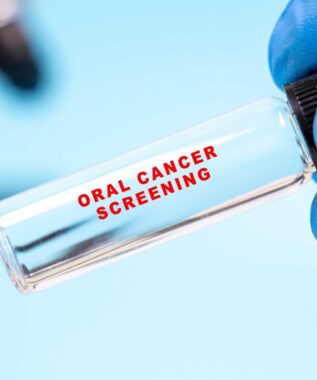 From a young age we are told the importance of maintaining a healthy and happy smile. We are told to brush and floss regularly, and that if we keep up with that, we would be able to have a lifelong dazzling smile. The fact of the matter is, however, that flossing and brushing are only half of the battle, and that attending routine checkup examinations and cleanings are a necessary portion of the standard dental regime. Fortunately, the team at Dreem Dentistry in Leawood, KS want to help you stay on track for a life-long grin and understand the benefits of attending regular visits.
From a young age we are told the importance of maintaining a healthy and happy smile. We are told to brush and floss regularly, and that if we keep up with that, we would be able to have a lifelong dazzling smile. The fact of the matter is, however, that flossing and brushing are only half of the battle, and that attending routine checkup examinations and cleanings are a necessary portion of the standard dental regime. Fortunately, the team at Dreem Dentistry in Leawood, KS want to help you stay on track for a life-long grin and understand the benefits of attending regular visits.
What Can be Done About an Uneven Smile?
 For most individuals, their smile holds significant weight in their level of confidence, as it is often the first attribute one notices about a person. That being said, being one step away from an otherwise perfect smile can impact a person’s self-esteem significantly. Fortunately, your Leawood, KS dentist at Dreem Dentistry recognizes this, and offers a variety of cosmetic and restorative treatments that can be utilized to restore your grin and give you that beautiful appearance you’ve always wanted.
For most individuals, their smile holds significant weight in their level of confidence, as it is often the first attribute one notices about a person. That being said, being one step away from an otherwise perfect smile can impact a person’s self-esteem significantly. Fortunately, your Leawood, KS dentist at Dreem Dentistry recognizes this, and offers a variety of cosmetic and restorative treatments that can be utilized to restore your grin and give you that beautiful appearance you’ve always wanted.
Securing Your Dentures with Dental Implants
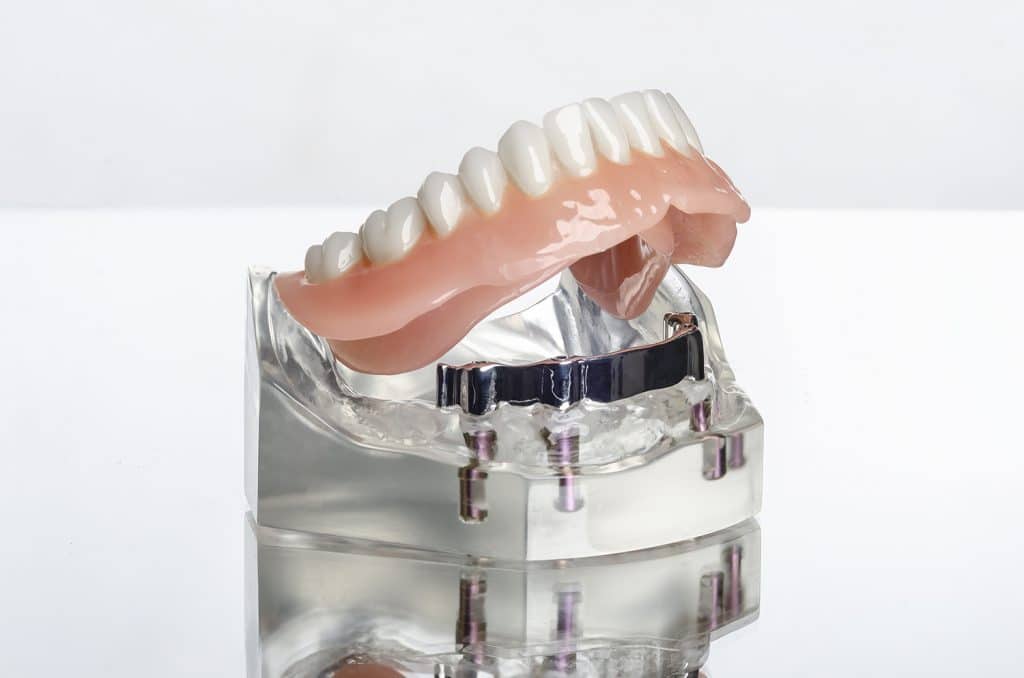 Nowadays, restorative dental procedures such as implant dentistry among others are able to assist in enhancing your smile while providing a sturdy line of defense from harm. While losing teeth as an adult is not as common of a phenomenon as one might think, it can be addressed more easily with advanced technology, even when you have many or all structures missing. Our Leawood, KS dentist at Dreem Dentistry can help you restore your grin with a lifelike appearance and functionality, all with the use of dentures secured by implants.
Nowadays, restorative dental procedures such as implant dentistry among others are able to assist in enhancing your smile while providing a sturdy line of defense from harm. While losing teeth as an adult is not as common of a phenomenon as one might think, it can be addressed more easily with advanced technology, even when you have many or all structures missing. Our Leawood, KS dentist at Dreem Dentistry can help you restore your grin with a lifelike appearance and functionality, all with the use of dentures secured by implants.
When a Root Canal is Necessary for Preserving Your Grin
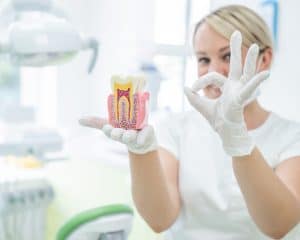 Losing a tooth as an adult can arise from a myriad of circumstances, most of which are preventable. Of these circumstances, decay and infection tend to be a major offender. Indeed, if an oral structure is damaged beyond saving, sometimes it makes more sense to extract it in order to preserve your oral health. When a structure experiences infection from the inside, however, there may be a chance to save that tooth and preserve your grin with a root canal treatment, and your Leawood, KS dentist at Dreem Dentistry is prepared to help you through that process.
Losing a tooth as an adult can arise from a myriad of circumstances, most of which are preventable. Of these circumstances, decay and infection tend to be a major offender. Indeed, if an oral structure is damaged beyond saving, sometimes it makes more sense to extract it in order to preserve your oral health. When a structure experiences infection from the inside, however, there may be a chance to save that tooth and preserve your grin with a root canal treatment, and your Leawood, KS dentist at Dreem Dentistry is prepared to help you through that process.
What Your Nighttime Teeth Grinding Could Mean
 Getting up in the morning can be one of the biggest struggles for many people, especially if you have to get up early. What’s more, waking up feeling tired or even experiencing pain is nobody’s first choice, making the morning routine that much more tiresome. When you wake up with tooth or jaw pain, it can impact your entire day by causing side effects and other problems throughout. Fortunately, your Leawood, KS dentist at Dreem Dentistry can provide information on the cause of your nighttime teeth grinding and what it could mean for your oral health.
Getting up in the morning can be one of the biggest struggles for many people, especially if you have to get up early. What’s more, waking up feeling tired or even experiencing pain is nobody’s first choice, making the morning routine that much more tiresome. When you wake up with tooth or jaw pain, it can impact your entire day by causing side effects and other problems throughout. Fortunately, your Leawood, KS dentist at Dreem Dentistry can provide information on the cause of your nighttime teeth grinding and what it could mean for your oral health.
Enhancing Your Smile with Teeth-Whitening
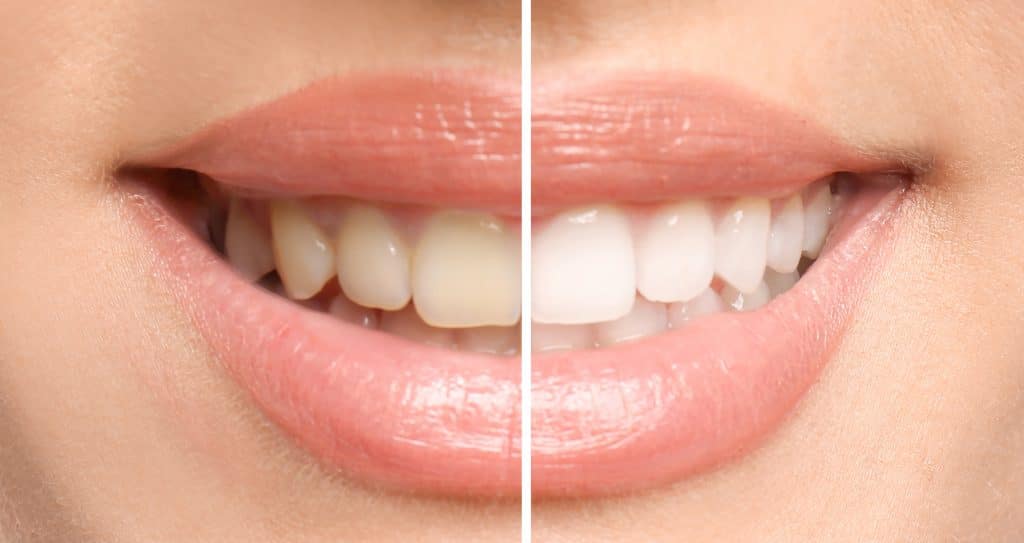 Whether you are aware of it or not, your smile endures a great deal of wear and tear throughout the years. It is affected not only by your regular brushing and flossing routine, but the foods you eat, beverages you drink, and a variety of other circumstances. Because of this, most people can benefit from cosmetic treatment that can remove stains that have developed over the years. Fortunately, this process does not require extensive treatment and can even be performed in as little as one visit. When you are considering a brighter smile, your Leawood, KS dentist at Dreem Dentistry is ready to help you enhance it with cosmetic whitening.
Whether you are aware of it or not, your smile endures a great deal of wear and tear throughout the years. It is affected not only by your regular brushing and flossing routine, but the foods you eat, beverages you drink, and a variety of other circumstances. Because of this, most people can benefit from cosmetic treatment that can remove stains that have developed over the years. Fortunately, this process does not require extensive treatment and can even be performed in as little as one visit. When you are considering a brighter smile, your Leawood, KS dentist at Dreem Dentistry is ready to help you enhance it with cosmetic whitening.
How Tooth-Colored Fillings Really Help Your Smile
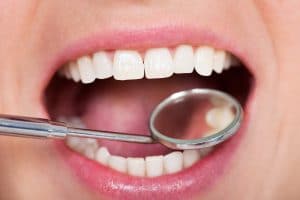 Nothing is worse than chomping down on your favorite holiday treat and experiencing tooth pain. What’s more, that pain could actually be indicative of a much bigger problem, as regular tooth pain is not common. It could indicate a lodged structure, a chip or fracture, or even a sign of infection. If left unmanaged, this pain could increase and ultimately even cause tooth loss. Fortunately, your Leawood, KS dentist at Dreem Dentistry is prepared to help you. If your ache is caused by harmful bacteria that have been eating away at an oral structure, you may want to consider a filling and the benefits it can bring for your smile.
Nothing is worse than chomping down on your favorite holiday treat and experiencing tooth pain. What’s more, that pain could actually be indicative of a much bigger problem, as regular tooth pain is not common. It could indicate a lodged structure, a chip or fracture, or even a sign of infection. If left unmanaged, this pain could increase and ultimately even cause tooth loss. Fortunately, your Leawood, KS dentist at Dreem Dentistry is prepared to help you. If your ache is caused by harmful bacteria that have been eating away at an oral structure, you may want to consider a filling and the benefits it can bring for your smile.
Ways that Dental Implants Can Enhance Your Smile
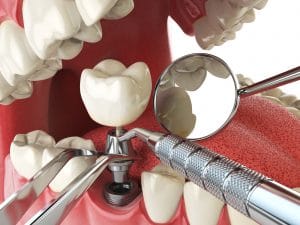 Extracting a tooth is almost always a last resort that is usually only considered if your oral health is at risk. When this occurs, however, it is important to have the missing structure replaced, as not doing so can affect your bite, function, and potential for developing future infection. In order to preserve your smile’s safety and restore its function, your Leawood, KS dentist at Dreem Dentistry wants to let you know the benefits of receiving dental implants and ways they can help enhance your grin.
Extracting a tooth is almost always a last resort that is usually only considered if your oral health is at risk. When this occurs, however, it is important to have the missing structure replaced, as not doing so can affect your bite, function, and potential for developing future infection. In order to preserve your smile’s safety and restore its function, your Leawood, KS dentist at Dreem Dentistry wants to let you know the benefits of receiving dental implants and ways they can help enhance your grin.
Why You Should Replace a Lost Tooth
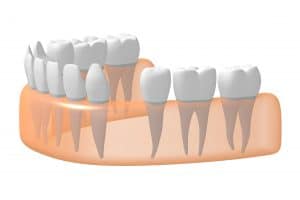
While tooth aches and pains do occur, persistent pain is not a common occurrence and could actually be indicative that there is a bigger issue at hand. In fact, if you allow your pain to continue without remedy, it could actually lead to decay and even tooth loss. You may even need to have the oral structure removed in order to preserve your oral health, a last resort for many individuals. Even after the structure is no longer present, however, you still may be subject to further loss and infection, which is why your Leawood, KS dentist emphasizes the need to replace a lost tooth.
Fixing Your Misalignment With Clear Aligners
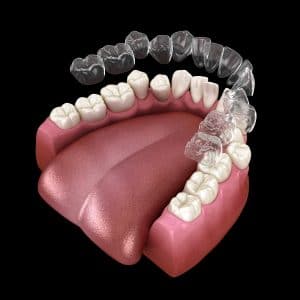
Do you have uneven teeth? People with crowded, crooked, or overlapping teeth could be at risk of developing serious oral health complications. In addition to embarrassment at your smile’s appearance, you could also be more likely to develop decay and inflammation. In today’s blog, your Leawood, KS, dentist will explain how we correct uneven teeth with clear and comfortable Invisalign® aligners.




